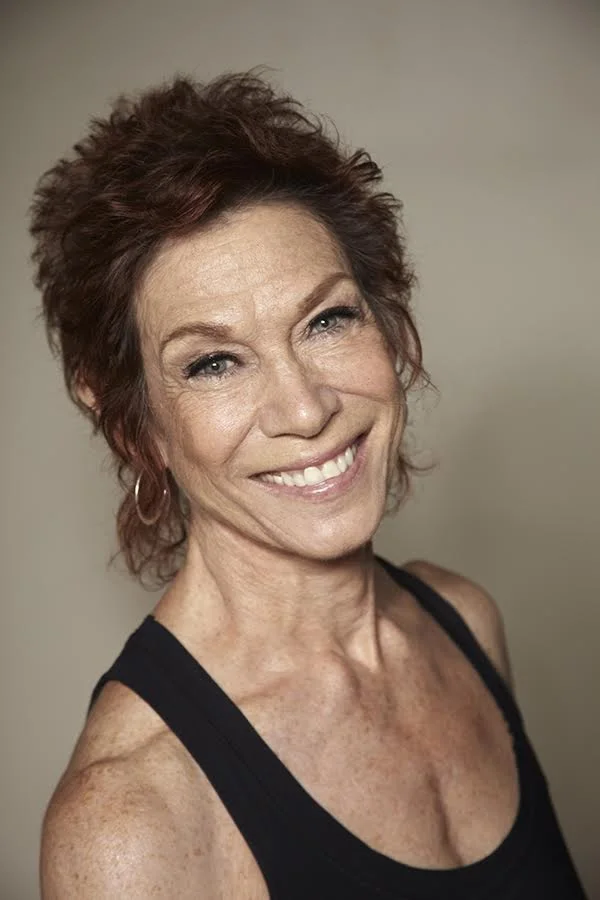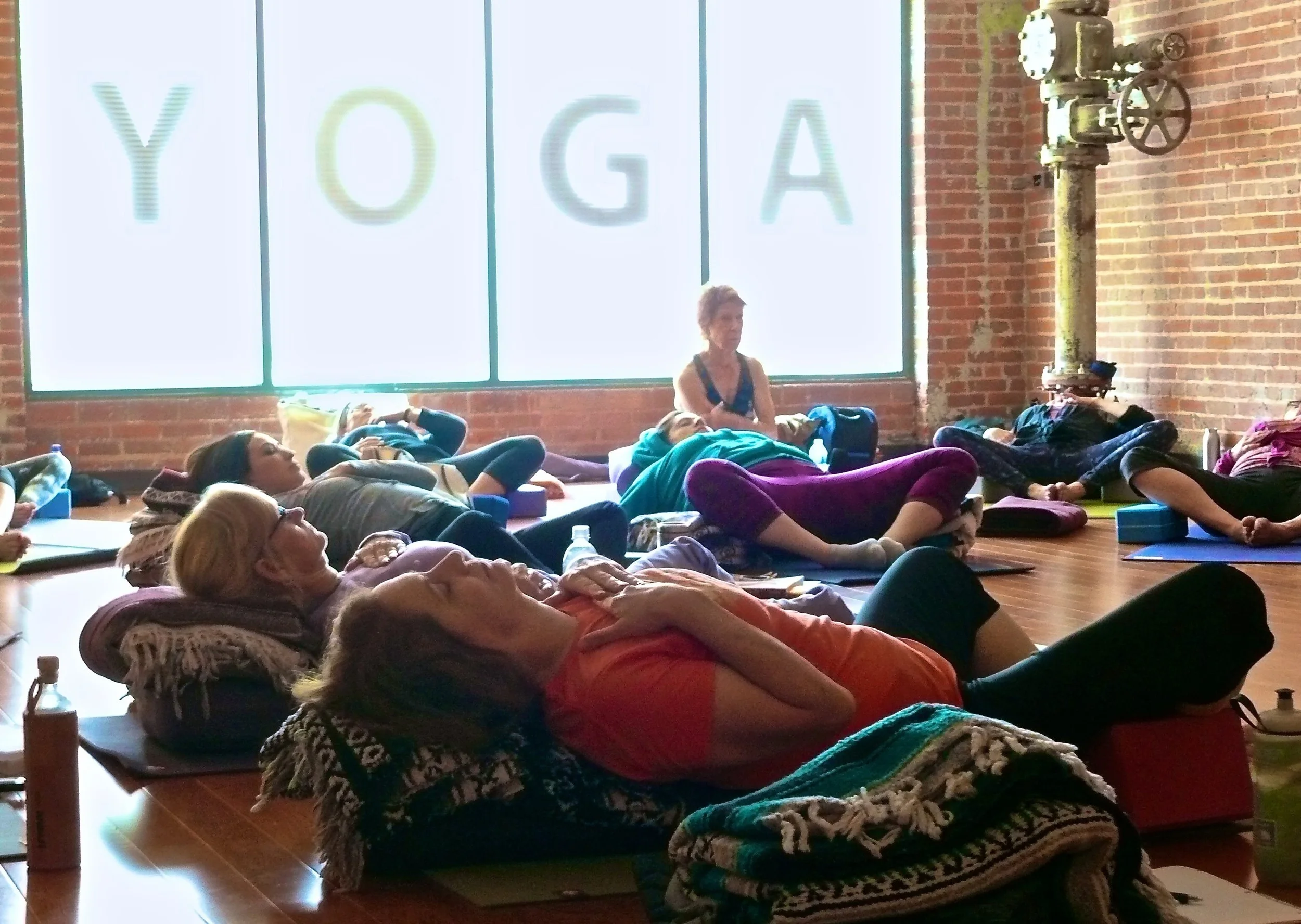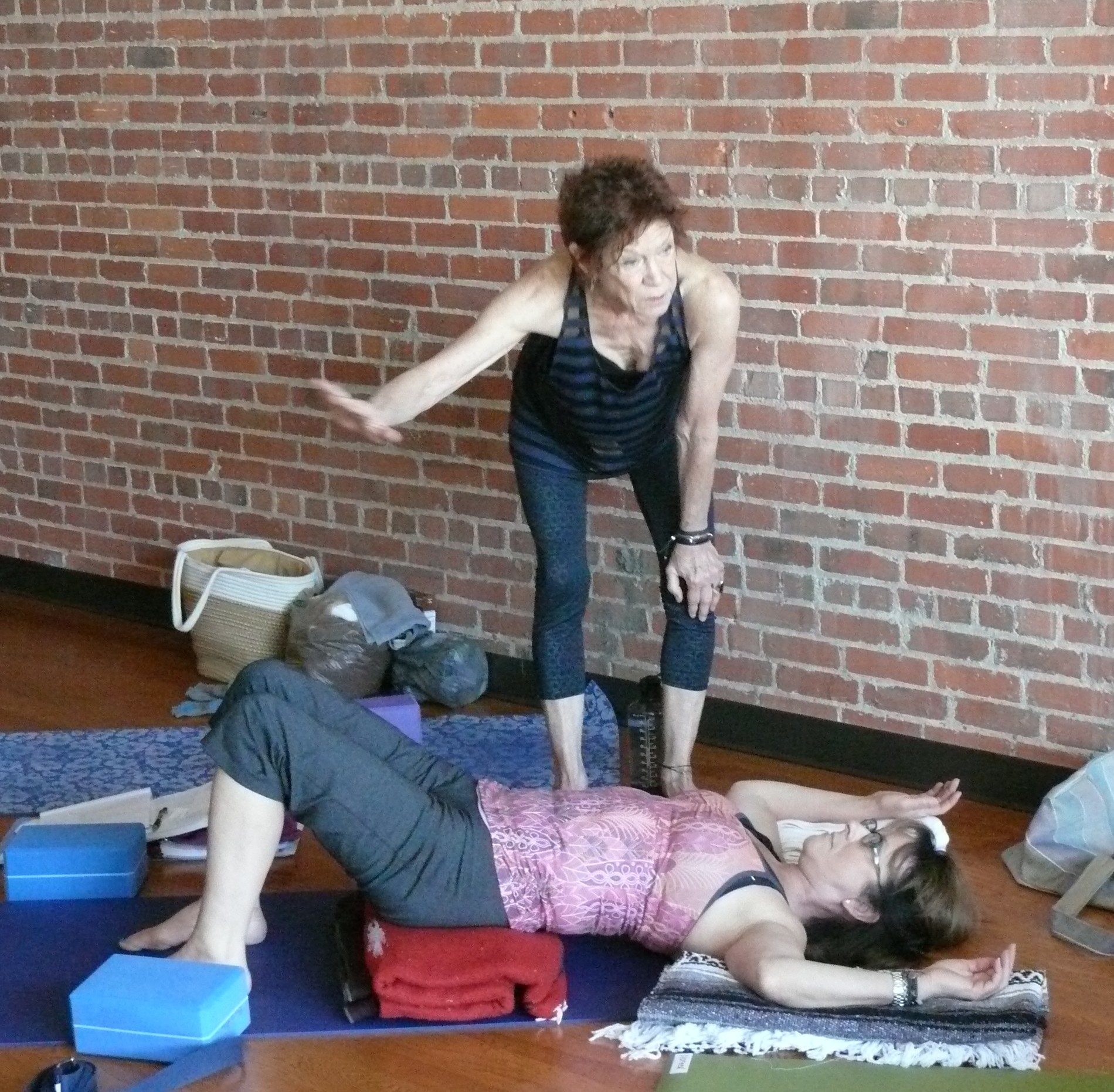Yoga And NYC: Healing From Cancer - Words Of Inspiration From Tari Prinster, Founder Of Yoga4Cancer
/A couple of weeks ago, I had a wonderful honor of interviewing Tari Prinster, a founder of Yoga 4 Cancer.
I was connected to Tari through a private yoga client of mine who is a cancer survivor and has been taking Tari’s Yoga 4 Cancer class in NYC. She told me in the intake, before our first session, about her recovery from breast cancer and how she’s been taking Tari’s class.
Preparing for our session, I bought Tari’s book, Yoga for Cancer, and I was introduced to her personal story of healing from breast cancer and how she came to develop her methodology, Yoga 4 Cancer.
The book is deeply personal and inspiring, and it also offers a scientific perspective of why yoga works and how it actually helps people in healing from cancer, as well as actual yoga exercises and sequences people can use right away.
Tari teaches 2 weekly Yoga 4 Cancer classes in nyc that are free and open to all. Classes are for those in treatments and also for those who are survivors. You can find out more about her classes and workshops here and her book here.
I was very much moved and inspired by Tari’s words and her commitment to sharing her yoga to empower people who are going through cancer treatments and those who are recovering. You can read our interview below.
Interview
Where are you from?
I was born 100 years ago in western Colorado. I grew up as a western girl, a cow girl. That’s where I grew up. I left to go to college at Seattle University, and then I went off to Ecuador in the Peace Corps when I was just out of college. I moved to NYC after that and I lived in a whole bunch of other places. I live in NYC now.
How old are you?
I am 71 years old.
Do you have any children?
I have two children. My son lives in California and has two granddaughters and my daughter lives in Vermont.
How many classes do you teach in NYC currently?
I have two “yoga for cancer” classes in NYC right now. And I travel to teach workshops and do teacher trainings and that takes up most of my time.
How often do you travel?
At least once a month to do a teacher training somewhere. I recently went to Chicago and North Carolina. I also do trainings here in NYC all the time. Very frequently, I go up to Kripalu in Massachusetts.
What brought you to yoga?
It was that I wanted to manage my menopausal symptoms. I got tired of going to the gym, jogging and doing all of those things and they didn’t seem to do very much for me, so I took up yoga. One of my biggest concerns was osteoporosis and bone loss, and I thought that maybe yoga would keep me more flexible and I can stand up straighter and stuff like that. And wow, I discovered all sorts of things that it would do for me. So that’s what brought me to yoga - to stay healthier and younger.
Did you find that yoga did all those things for you?
Absolutely. Absolutely. It was really kind of amazing how, once I started doing yoga, my body started changing in ways very quickly. My posture improved, the flexibility, my endurance, my moods, everything improved. I wasn’t a sedentary person by any measure at all, before I started doing yoga, but I just didn’t see the kinds of overall benefits that I did when I started doing yoga. It just seemed like it had a broader benefit to my body and staying well than any particular sport or any other form of exercise.
What was your life like before yoga?
I had a very active life, I still do. I was very conscious of staying healthy by exercising daily. I was quite serious about that. So yoga really didn’t change that part of my life. It just made it better and more focused, and different.
So it seems that your life work is Yoga 4 Cancer now. What was your life like before that?
I was a graphic artist. I worked for several private clients doing design work, and I continued doing that for a long time until I found that this Yoga 4 Cancer was becoming a business that was demanding of my time full time. That was about 15 years ago. I started just focusing on this, started writing my book, and creating my teacher training program. So now I travel all over training other yoga teachers to use the methodology that I developed.
It was developed out of classic yoga but I wanted to put the science behind it to understand what is it, what is the science of yoga that makes it detoxing of your body. What is it that we do when we do a yoga pose that detoxes? Why would someone who’s been treated for cancer or undergoing cancer treatments or in long-term recovery need to do some of these things, detox their body, and continue to do bone building? Why is it that range of motion, which one loses due to some cancer surgeries, needs to be constantly monitored and why one needs to continue to work on the range of motion? I wanted to offer understanding for these things.
How has yoga changed your life?
If you can make yoga your daily companion, make it a friend, personify it, make it your companion on a daily basis, and to be with that companion, it will make your life longer, it will make your life healthier, and it will make you happier. So that’s how it’s changed my life. It becomes my daily companion. I go and be with my yoga daily. I need that. Sort of like calling your mom and saying hi every day. It makes you feel a little bit more complete, it brings everything into balance, and that makes me healthier, that makes me happier, and I think in the end I’ll probably live a longer life.
You talked about in your book how you sort of instinctively started using yoga to support your healing from cancer. How did that come about?
It was this idea of detoxing the body, especially when I was going through chemotherapy - I felt that something poisonous was being put in, and for a reason - and what I wanted to do was to process that through my body as quickly as possible. I focused on the things that the yoga world said were detoxing and studied them and used them on a daily basis to process the toxins through my body. I also knew that what was happening in the process of my cancer treatments was that my immune system was being weakened and threatened, and what I knew was that the reason that I had developed the cancer was that something happened in my body, that the immune system was weak and that’s how I got the cancer so I wanted to do anything and everything possible to keep my immune system strong to avoid recurrence.
On the more spiritual side, I found that yoga led me to ways of being with my fears about a recurrence but also fears that, perhaps my life would be shorter than what I had planned on. The scarier aspects of cancer - that this is not like getting the flu, that it’s a life threatening disease - and how to manage those fears, how to deal with the impermanence - which we talk about in yoga - and come face to face with the impermanence is reality testing. So I found that going to my mat helped me deal with those realities.
What made you decide to teach yoga?
Because I saw what was going on in my own body, and that I was getting stronger, and also I’ve discovered theses relationships between yoga and keeping the immune system strong and really finding some scientific stuff behind yoga, I thought, “Why should I keep it a secret?” So I went into teacher training not knowing that that was really anything I would be good at or I wanted to do, but I thought, if I was going to bring it to other people I’d better know how to do it right. Then along the way, I’ve discovered I really liked teaching it. I think I’m pretty good at it so I kept on going.
What do you love about teaching yoga for cancer?
I see other people asking the same questions I asked, and being motivated to speed their recovery from their treatments, and strongly committed to avoid a recurrence, and very curious about how to do that, and they come with fears and questions into a yoga class and leave feeling happier and healthier. So when I see that process, I am motivated and that’s why I teach. I enjoy helping others find a way to live a longer, happier, healthier life.
What's the challenge of teaching yoga?
The challenges are that there is an expectation in the world and in the yoga world that teaching yoga for cancer should be something that’s free. That yoga teacher doesn’t need to be compensated, that yoga studios are free and they don’t have to pay rent and they don’t have to pay taxes. The biggest challenge is really for the yoga world to understand and the cancer world to understand that I’m a professional on any level that any other health care provider is and that there should be a compensation, that it should not be for free.
I understand that your yoga for cancer classes are available for free and open to everyone. How do you get funded for those classes?
I ask people for money. I ask people of means. I ask foundations. I ask for contributions from my students. I write grants. There are many ways to raise money and that becomes yet another full-time job.
What do you do for stress relief?
I go to my mat.
Me too. What do you do for fun?
I go to my mat. (Laughs.)
Same here. (Laughs.)
I sound like a pretty boring person.
I think anybody who does yoga understands. (Smiles.) What do you love about New York?
I like the diversity. It gives us a perspective on the world, being in this tiny little island with so many people on it from so many parts of the world. When I travel to the other parts of the United States where there’s less diversity, I see attitudes that are not as patient and inclusive and worldly, in the sense of the worldly being that we we are so many different cultures and so many different colors of skin. Learning how to be together and live together is important.
What do you not like about New York?
In the summertime, I don’t like how the heat makes the city streets not smell so great.
Somehow I knew that something about smell was going to be mentioned.
And in the wintertime, the cold seems even more cold than elsewhere.
What inspires you?
My students inspire me. I see someone who’s dealing with a lot of fear or a lot of pain come to yoga class and deal with those and then come back the next week again. That inspires me to know that they have found something in the yoga and in the class that comforts them and that inspires me to keep on writing grants and teaching classes, because I know that they are benefiting and their life is being made a little bit easier.
What's your one wish if you had a magic wand?
That every hospital and clinic that is starting wellness programs for what are called CAM (complementary and alternative medicines) programs require that anybody who teaches yoga has been trained, that they understand that all yoga is not the same, that the teacher needs to have a special training. That’s my one wish.
My second wish is that then, as insurance companies allowed for physical therapy to be covered under health insurance policies for surgery or any other kind of medical services - that they also allow for there to be coverage of yoga - taught by trained yoga teachers that are qualified, that are certified, that are licensed to teach - to be covered under their insurance policies.
*******************************************************
If you would like to find out more about her methodology and her personal journey, you can find Tari's book here:





